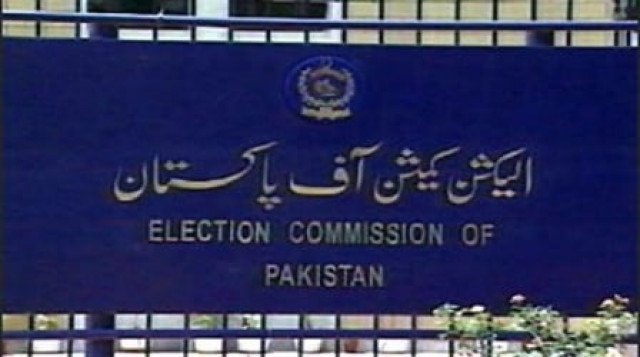Terms, perks of ECP members yet to be fixed
Government bill, proposing a term of two years, is still pending with the standing committee.

Uncertainty over elections is not limited to its scheduling. The very body in charge of holding elections in the country has been left hanging, as the tenure, salaries and perks of members of the Election Commission of Pakistan (ECP) is yet to be determined.
The 18th Amendment to the Constitution, passed in early 2010, directed the government to appoint a permanent ECP comprising the chief election commissioner (CEC) and one retired high court judge from each of the four provinces.
While parliament reduced the power of the CEC, it did not specify the terms and privileges of the four other members of the commission, who each have powers similar to the CEC. The term of the CEC was extended from three to five years.
The government had proposed that the terms of the other members should be fixed at two years. A bill was moved in the National Assembly – but is still pending with the standing committee on law and justice.
The government appointed four retired high court judges as members of the ECP in June last year: Justice (r) Fazal-ur-Rehman (Balochistan), Justice (r) Shahzad Akbar Khan (Khyber Pakhtunkhwa), Justice (r) Riaz Kayani (Punjab) and Justice (r) Muhammad Roshan Essani (Sindh) .
The constitutional posts of the four members were vacant from April 2010, when the amendment was passed, till their appointment in June 2011. During this period by-elections were held for a number of parliamentary seats. The validity of these election results is still pending with the Supreme Court, as these polls took place under an incomplete commission.
An official from the law ministry, which drafted the law, said that currently there is no provision in the constitution or any law regarding oath of office, resignation, tenure of office and terms and conditions for the four members of the ECP. This will remain the case until parliament passes the bill.
According to the draft bill, an ECP member will be entitled to the same salary, allowances, perks and privileges as a high court judge. Additionally, he can only be removed from office according to the same procedures for removing a high court judge, as laid out in Article 209 of the Constitution.
Sources in the ECP said that, at the moment, the members of the ECP are drawing provisional salaries which will be adjusted when the law is passed. They added that the idea for the proposed two-year term came from Babar Awan, considered the legal guru of the Pakistan Peoples Party.
The ECP officials expressed bafflement at the government’s wish to appoint members for such a short time, as well as the fact that the issue has lingered so long, especially when the commission will be dealing with key election matters soon.
The Express Tribune contacted Begum Nasim Chaudhry, who heads the National Assembly’s committee on law and justice. However, despite initially agreeing to give her side of the story, she later did not answer calls.
Many other important legislative issues, such as the bill on the new accountability commission, have been pending with her committee for as long as two years.
Published in The Express Tribune, January 8th, 2012.



1724319076-0/Untitled-design-(5)1724319076-0-208x130.webp)















COMMENTS
Comments are moderated and generally will be posted if they are on-topic and not abusive.
For more information, please see our Comments FAQ